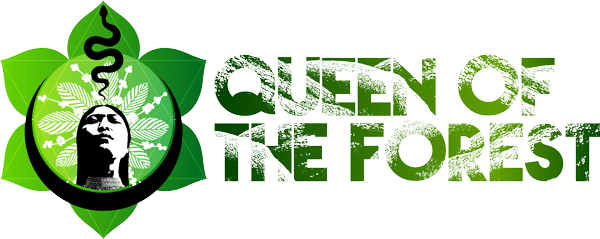FOREVER THE FOREST
Global Consciousness for Rainforest Preservation
Uniting Cultures and Knowledge for Forest Protection
Rainforests, often referred to as the lungs of our planet, are critical to the global ecological balance and the survival of many species, including humans. Despite their importance, they are under relentless threat from deforestation, mining, agricultural expansion, and climate change. Achieving rainforest preservation necessitates a transformative shift in global consciousness, where the intrinsic value of these ecosystems and the cultures they nurture is universally acknowledged and actively protected.
The first step towards fostering this global consciousness is raising awareness of the vital role that rainforests play in our world. They are not only biodiversity hotspots, home to over half of the world’s species of plants and animals, but they also play a crucial role in regulating the global climate. Rainforests act as carbon sinks, absorbing significant amounts of carbon dioxide from the atmosphere, thus mitigating the effects of climate change. Furthermore, they are essential for the water cycle, influencing global and regional rainfall patterns.
Education is a powerful tool in the journey towards rainforest preservation. It can bridge the gap between ignorance and action, empowering individuals with the knowledge to make informed decisions and advocate for sustainable practices. Educational programs should not only focus on the ecological importance of rainforests but also highlight the cultural and spiritual significance these forests hold for indigenous and local communities. These communities have lived in harmony with the forest for centuries, developing a deep understanding of its ecosystems and the sustainable ways to utilize its resources.
International cooperation is paramount in the fight to preserve rainforests. The challenge of deforestation and degradation of these ecosystems transcends national boundaries, requiring a unified global effort. Countries need to come together to establish and enforce international policies that prioritize ecological sustainability and respect for indigenous rights. This includes implementing and supporting measures that reduce deforestation, promote reforestation, and ensure the sustainable management of forest resources.
Respect for indigenous rights is fundamental in the context of rainforest preservation. Indigenous peoples are the traditional custodians of many of the world’s rainforests, and their knowledge and practices are invaluable in conserving these ecosystems. Policies and practices for rainforest conservation should be developed in collaboration with indigenous communities, ensuring their rights, knowledge, and traditions are respected and integrated into conservation strategies.
Highlighting successful conservation initiatives can serve as a beacon of hope and a blueprint for future actions. There are numerous examples worldwide where concerted efforts by governments, NGOs, indigenous communities, and the private sector have led to significant conservation successes. These initiatives often combine traditional knowledge with modern conservation techniques, demonstrating that sustainable coexistence with nature is possible and beneficial for both the environment and the communities involved.
The need for global action has never been more urgent. Rainforests are disappearing at an alarming rate, with severe consequences for biodiversity, climate, and human societies. The global community must act decisively to halt this trend, implementing comprehensive strategies that address the root causes of deforestation and degradation. This includes tackling issues such as illegal logging, mining, and the demand for agricultural land, which are among the primary drivers of rainforest destruction.
Fostering global consciousness for rainforest preservation is not just an environmental imperative but a moral one. The future of our planet and the legacy we leave for future generations hinge on our ability to protect these vital ecosystems and the life they support. It is a collective responsibility that requires the engagement and commitment of individuals, communities, nations, and the international community as a whole.
In conclusion, preserving the world’s rainforests is a complex challenge that demands a multi-faceted approach, combining awareness, education, international cooperation, respect for indigenous rights, and the promotion of successful conservation initiatives. It requires a shift in global consciousness to recognize the interconnectedness of all life and the critical role rainforests play in sustaining it. By embracing this holistic perspective and working collaboratively towards common goals, we can ensure the survival of these irreplaceable ecosystems for the benefit of all Earth’s inhabitants.
Importance of children’s education on the topic.
Educating children about the importance of rainforest preservation is crucial for fostering a generation that values and actively protects these vital ecosystems. Children are the future stewards of the planet, and their early engagement in environmental conservation can lead to lifelong commitments to sustainable practices.
The role of children’s education on the topic of rainforest preservation encompasses several key aspects:
- Building Awareness: Introducing children to the concept of rainforests, their biodiversity, and the ecosystem services they provide helps build a foundational understanding of their global significance. This awareness fosters a connection between children and the natural world, emphasizing the interdependence of humans and the environment.
- Developing Empathy: Education can help children develop empathy for the plants, animals, and people who depend on rainforests for their survival. Learning about the threats these ecosystems face, such as deforestation and climate change, can motivate children to become involved in conservation efforts and advocate for sustainable practices.
- Encouraging Critical Thinking: Through education, children can learn to analyze the causes and effects of environmental issues. They can explore solutions to complex problems like deforestation, gaining skills in critical thinking and problem-solving. This empowers them to contribute to discussions and actions regarding environmental sustainability.
- Promoting Sustainable Lifestyles: Education can teach children the importance of sustainable living and how their choices impact the environment. By learning about sustainable practices, such as reducing waste, conserving water, and supporting eco-friendly products, children can begin to make informed decisions that contribute to the health of the planet.
- Inspiring Action: Educated children are more likely to take initiative and participate in conservation activities, such as tree planting, recycling programs, and wildlife protection. Schools and educational programs can encourage this participation by providing opportunities for hands-on conservation experiences and community service projects.
- Nurturing Future Leaders: Continuous education on environmental issues prepares children to become future leaders in conservation and sustainability. With a solid understanding of the challenges and opportunities in preserving rainforests, they can lead initiatives, influence policies, and innovate solutions for a more sustainable future.
In summary, children’s education on rainforest preservation is pivotal in shaping a society that prioritizes and acts for the sustainability of these crucial ecosystems. By integrating this education into school curricula, extracurricular activities, and family discussions, we can nurture a generation equipped with the knowledge, values, and skills necessary to protect and sustain the natural world.


